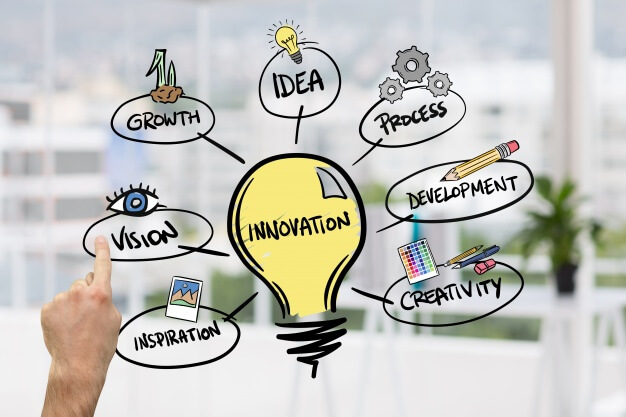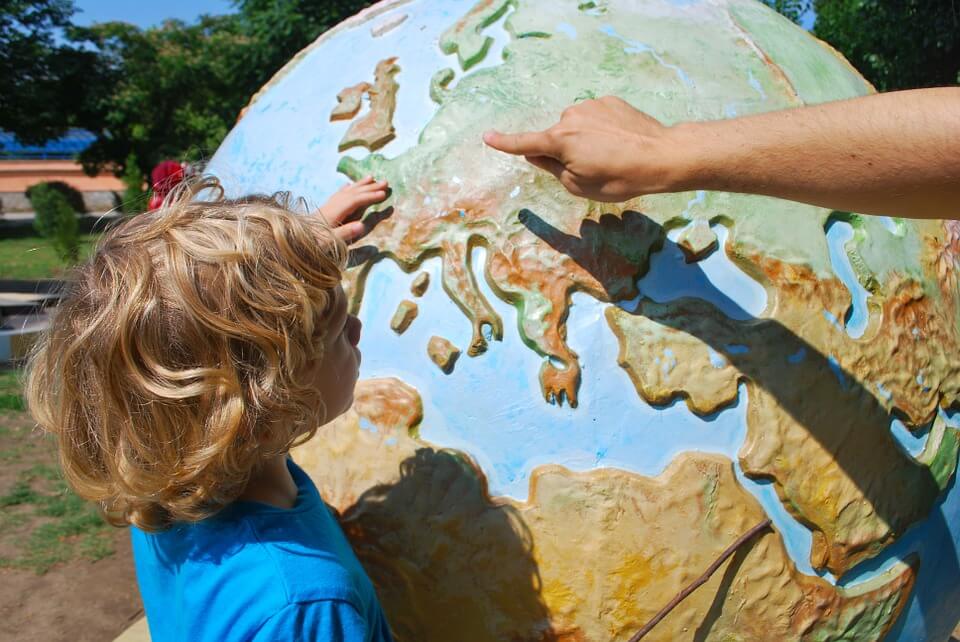
Innovation in Education: Beyond the Technology Perspective

I say innovation; you think technology. It has become natural for our generation to associate innovation with using the power of technology to reduce effort. Innovation in Education, too, is using technology to make students ready for a world defined by ‘click-your-way-to-success’. Is that good or bad? Or does it do nothing to change the ‘status-quo’ of prevalent classroom education?
Edward Thorndike, the father of educational psychology, believed that learning is an automatic process. It follows that the resultant progress takes place in increments. He also suggested that response to stimulus patterns were the cause for cognitive differences. This was a departure from the commonly perceived answer of general intellectual ability. While he did partially backtrack on his ‘law of effect’ theory, his contributions to comparative study throw up many questions prevailing education systems and the challenges ahead.
Let’s cast some light on emerging trends in education. This includes innovative schools and innovation in education, that is beyond the purview of technology-influence.
Learning Trend in Vogue: Educational Vacations

How often do we have a tendency to believe that vacations are purely for fun? Who doesn’t want a few days away from homework, projects and classrooms? It comes as no surprise that holidays are perceived as an escape from the demanding school routine and nothing more. The reason for this is simple. Education, today, is gaining a bad reputation. It is seen as a rat-race model that does not emphasize learning as the fundamental principle.
If classrooms aren’t doing that, a vacation surely can. You can learn on the road. All that you need to do is, choose the right place. What you learn there is beyond books. These lessons are born out of the experience and will have an impact on your worldview. Right from human interaction to understanding and respecting different cultures, educational travels, at the very least, are fruitful.
Let’s consider the example of visiting a historical place like Agra or Aurangabad. Stories of grandeur, kings, empires and monuments will surely be a treat for children. The visual masterpieces and the artistic expertise of Ajanta and Ellora caves will surely leave the young spellbound. The biggest benefit of such learning, though, is it’s inherent ability to nurture curiosity.
Moral Education: A much-needed Innovation in Education

Knowledge, while it is the cornerstone of any education, does little if the moral balance is amiss. Worse, a moral vacuum can lead to knowledge astray. The situation is volatile, with the world battling the threat of war and violence. In such state of affairs, a system providing adequate space for moral education is indeed the much-needed innovation.
It is important, though, for educators to not sound preachy by using fables and myths. The necessity of moral values is demonstrated by violence that surrounds us. The violence that has become a mundane occurrence in many parts of the world. If innovation means making life easier, getting rid of at least limiting war and mindless bloodshed, is surely an innovation. This depends on an education system that drives home the necessity of mutual respect and acknowledgement of diversity.
One such example is the Japanese school system where moral education is an integral part of the curriculum. While the country’s current situation might not reflect the presence of such a curriculum, the effort nonetheless is praiseworthy. While there is a fear of moral education turning militaristic and returning to the prewar system, it does introduce children to a new paradigm. This surely is the biggest success of moral education: Helping students realize the necessity of moral education.
Experiential Education and its Social Impact

A first-hand experience of different communities, living conditions can enhance students’ understanding of life that is different from their own. This can pave way for holistic development and nurture children to contribute to the betterment of our society.
This sort of learning can include a day’s trip to a pottery town or living among communities that inhabit different parts of the country. Also, an outing involving spending a few hours a month at community-run sports centres, schools and innovative business organizations can help children acquire the ability to gain insights, which, otherwise, might elude them.
More importantly, the insights drive children to learn, hone and master specific skill sets focused on tackling real-world problems. Such exposure at a young age can drive significant social impact in education and other fields and address ills like caste, class and religious discrimination.
The biggest plus, though, is the scope of experiential education in eliminating apathy. Children are sensitised and consequently, they inculcate the most important value of empathy. To this end, moral education and hands-on learning will contribute to an overall development that is much needed in the times we live in.
Innovative Schools in India that are driving change

India, in the recent past, has seen many unique schools emerge. Some schools use open source software to make a point against the ownership of knowledge, and some stand for a friendly relationship between teachers and students. And many more that stand out with their approach.
A story by Tanvi Patel, published in The Better India, lists some of these schools that include a 2.5-acre open-air school in Kolkata, a platform school in Bihar for orphaned kids who sell tea on railway platforms and the Veena Vadini school in Madhya Pradesh where all the 300 students are ambidextrous!
If our education draws inspiration from such inspiring innovation in education, a mini education-revolution is surely in the making.
Coming to the question of technology-driven innovation in education: Technology is definitely at the core of innovation and for the most part is a powerful tool that has created a sea change. But, to harness it’s potential, it is necessary to adopt innovation in ideas and approach which can be complemented by technology. This way, the education system in our country can find new hopes, new roads and a new vision for the future.
Also, Read The Education System In India During The Vedic Age.
Recomended Blogs

In recent times, there has been a noticeable surge in cases of viral fever, causing concern among both

Zedua
1 year ago

It indeed is not easy to learn something new! Getting out of your comfort zone and learning something

Zedua
2 years ago

Is your child a team player? In today’s episode, we talk about the Importance of interpersonal relat

Zedua
3 years ago
